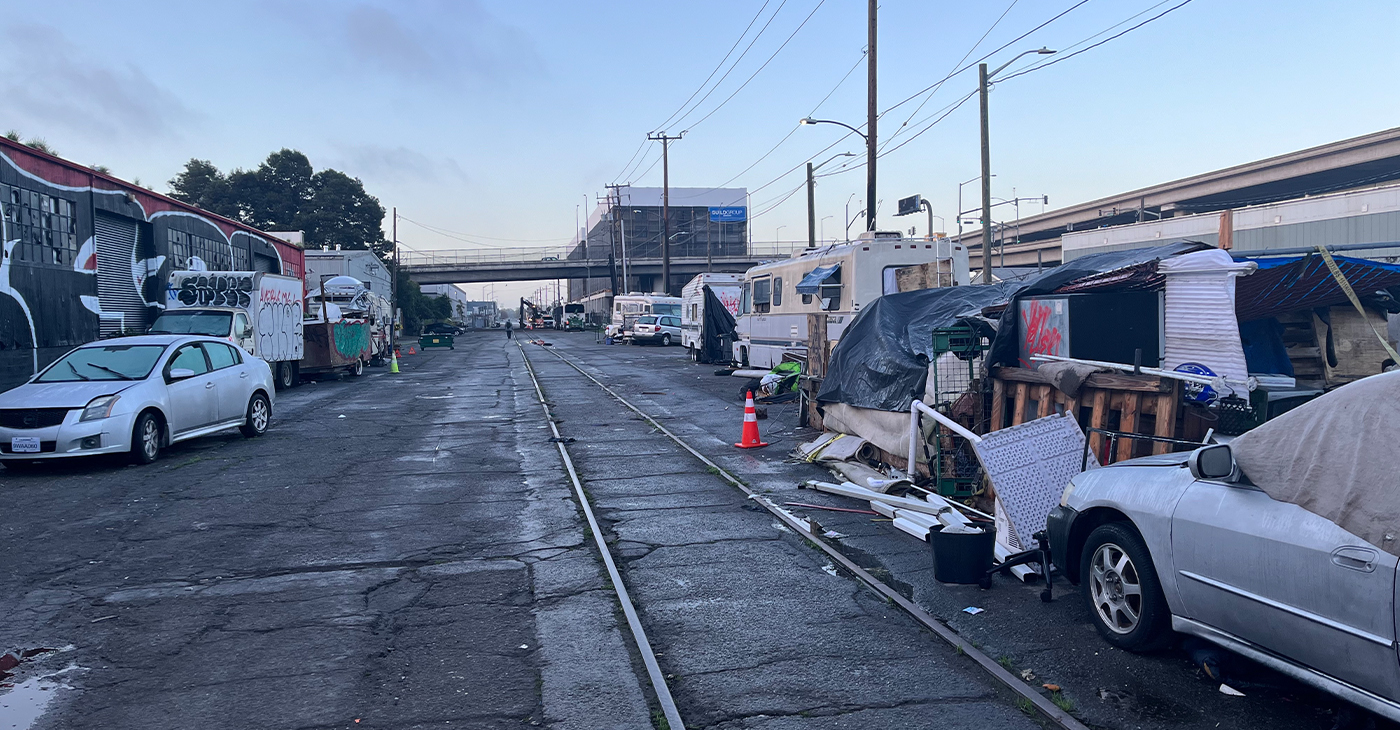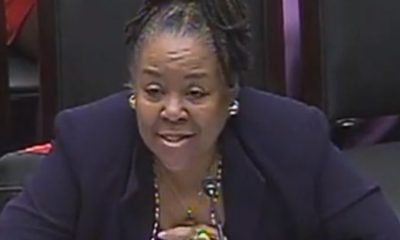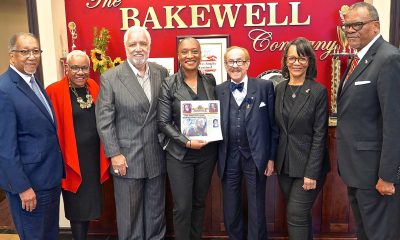Health
Understanding Black Mental, Emotional Health With Ntu Theory
Since the Association of Black Psychologists began 50 years ago, we have been working towards developing an understanding of the Black psyche. Defining mental/psychological, emotional, and spiritual health for Black people is an essential part of this process. Living in a society that devalues, demeans, and demonizes who you are requires an understanding of the emotional wounds created by this experience. There is an assembly of African American/Black psychologists who have sought to understand what mental health looks like for Black people.
In this article, I will discuss the foundations of mental health according to the Ntu theory, developed by two past presidents of the Association of Black Psychologists (ABPsi), Dr. Fred Phillips and Dr. Kevin Mwata Washington.
Ntu is an African concept that describes a universal, unifying force that underlies all existence. It is grounded in core principles of ancient African and African-centered world views. It is a philosophical belief system that guides and assists people to become balanced, unified, and whole; that is, in alignment with the divinely-governed natural order of the universe. The basic principles of Ntu are harmony, balance, interconnectedness, cultural awareness and authenticity. African American persons, families, and communities are invited to consider Ntu’s basic principles. In actuality, we believe all people could benefit from interrogating and adopting Ntu principles.
Principles of Ntu:
Being in HARMONY means living (steering) your life while understanding that divine forces are at play, which dynamically influence what directions and pathways you will traverse over the course of your life. To the extent that Black people are in harmony, we are accurately processing the circumstances of our lives. The “input signals” and meanings are clear and crisp. When you are in harmony with the divinely-governed universe, you are mentally and emotionally sharp. Guidance by the Ntu principle of harmony assists one in directing life’s paths and purposes in an efficient and rewarding manner.
BALANCE is strongly related to harmony and refers to life as a dynamic process of complementary and competing energy fields and forces. Our lives consist of all kinds of complementary relationships and notions (woman/man, sweet/sour, sacrifice/service) and competing demands (responsibility vs. obligation, work vs. family, individual needs vs. collective needs). Our task is to understand and balance these seemingly differential forces in a manner that brings about a unified whole.
INTERCONNECTEDNESS refers to an acceptance and understanding that we are energetically connected (“spiritness”) to all forces in the universe. We are connected to all life: humans, animals, plants, nature, spirits, and the environments we live in, including the multi-universe. This is not an easy concept to grasp, but consider how you feel when allowing your spirit to truly experience the beauty of new life (childbirth) or the power (majesty) of the ocean. Have you ever been with a group of people that you did not know, but felt deeply connected to while witnessing an emotional event, like a concert or a funeral? That’s the experience of Ntu.
CULTURAL AWARENESS is knowing who you are and how you fit in society at large and within the Black community. Understanding the forces that challenge your positive feelings about yourself and choosing to counter them with genuine self-love, Black joy and African pride is driven by one’s cultural awareness and consciousness. Dr. Wade Nobles, co-founder and past president of ABPsi, notes that the challenge of cultural awareness is to decolonize our minds and affirm our Being (Africanity). This requires that we have knowledge of racism and prejudices and how they operate to undermine our self-esteem and our Africanity, that which gives us a true sense of dignity and worth.
AUTHENTICITY refers to our ability to be “real” with ourselves and others. This requires us to allow ourselves to know who we are and what is really important to us. Many of us adapt to what others think we should be as opposed to checking in with ourselves to understand what is really important to us, how we want to be, what we want to do, and what we want to have in this world. Being authentic allows us to be both spontaneous and persistent. Through authenticity, we trust ourselves enough to respond to events in an effortless manner, to be in the moment, to stay true to our purpose, and to keep our eyes on the prize.
In future articles, we will consider how the Ntu principles and other Black psychology ideas and theories can guide and assist Black people to enjoy a greater sense of mental, emotional and spiritual well-being.
Sandra H. Smith, Ph.D., is a Clinical Training Director for the Therapist-in-Residency Program of The Association of Black Psychologists, Bay Area Chapter (ABPsi-Bay Area). This chapter is committed to providing the Post Newspaper readership with monthly discussions about critical issues in Black Mental Health. The ABPsi-Bay Area is a healing resource. We can be contacted at (bayareaabpsi@gmail.com) and readers are welcome to join with us at our monthly chapter meeting, every third Saturday at the West Oakland Youth Center from 10:00 a.m. – 12:00 p.m.
Bay Area
Mind, Body, and Spiritual Well-Being for Women Addressed in NAACP Forum in Oakland
The Women In The NAACP Oakland Branch is proud to announce the upcoming “Total You – Mind, Body, and Spirit Women’s Health Forum” scheduled for April 27 at Acts Full Gospel Church. Running from 9 a.m.-2 p.m. at 1034 66th Ave., this forum aims to provide an empowering platform for women to engage in discussions, gain knowledge, and access resources pertaining to their health and well-being.

Special to The Post
The Women In The NAACP Oakland Branch is proud to announce the upcoming “Total You – Mind, Body, and Spirit Women’s Health Forum” scheduled for April 27 at Acts Full Gospel Church.
Running from 9 a.m.-2 p.m. at 1034 66th Ave., this forum aims to provide an empowering platform for women to engage in discussions, gain knowledge, and access resources pertaining to their health and well-being.
The forum will feature renowned experts, healthcare professionals, and advocates from Genentech, John Muir Health, Sutter Health of The East Bay, Kaiser Permanente, and the Alameda County Public Health Department.
Our expert panel will address various aspects of women’s health, including physical, mental, and emotional well-being, and healthy relationships. The forum will encompass a wide range of topics such as breast cancer, menopause, reproductive health, nutrition, mental health awareness, preventive care, and much more.
Participants will have the opportunity to attend informative sessions, interactive workshops, and panel discussions led by experts in their respective fields. Additionally, there will be wellness activities, screenings, and informational booths offering valuable resources and support.
This forum is open to women of all ages and backgrounds, encouraging inclusivity and diversity in the conversation surrounding women’s health. Whether you’re seeking information for yourself, a loved one, or simply looking to connect with other women, this event promises to be enlightening and empowering.
For more information and to register for the Total You Women’s Health Forum, please visit https://www.naacpoakland.org/ or contact Dr. Delores Thompson. WIN chairwoman at (510) 328-3638.
The Women In The NAACP Oakland Branch is dedicated to empowering women, and young teen girls. We look forward to your participation in this important event.
To register, go to https://www.naacpoakland.org/events/the-total-you-womens-health-forum
Alameda County
Oakland Conducts Its Biennial ‘Point in Time’ Homelessness Count
Oakland, along with other cities in Alameda County, conducted their biennial ‘Point In Time’ census count on Feb. 1 to gain a thorough understanding of the size and dispersion of the homeless population in the region. The Point In Time (PIT) count is federally required by the Housing and Urban Development Department as a requirement to receive funding and resources to tackle homelessness in the area.

By Magaly Muñoz
Oakland, along with other cities in Alameda County, conducted their biennial ‘Point In Time’ census count on Feb. 1 to gain a thorough understanding of the size and dispersion of the homeless population in the region.
The Point In Time (PIT) count is federally required by the Housing and Urban Development Department as a requirement to receive funding and resources to tackle homelessness in the area.
David Modersbach, Grants Manager of Alameda County Health Care for the Homeless program, said that the methodology this time around was different, as this count had a much more personal “lived experience” aspect that previous counts did not have.
In 2022, the county relied more on statistical extrapolation and assumptions, but this year’s survey questionnaires allowed for details on substance abuse issues, how long someone has been living without proper housing, what resources people are in need of and much more.
“[The PIT count is] a critical opportunity for the county, Continuum of Care, and cities to understand the magnitude of homelessness in Alameda County. [The count] enables us to better allocate resources and implement effective programs to tackle this issue head-on in a compassionate and inclusive way,” Modersbach said.
St. Mary’s Center was one of the many meeting hubs across the county that hosted volunteers and community officials the morning of the count. The organization has been deeply involved in the effort to provide resources for unhoused people and others in need.
St. Mary’s is a nonprofit in West Oakland that helps seniors and preschool families with food and housing. Last year, the organization helped about 50 seniors find housing after they had fallen on hard times.
Sharon Cornu, executive director of St. Mary’s, said a lot of the older couples and individuals that come into the center have borne the brunt of the skyrocketing cost of living in the Bay Area. The most recent influx of seniors St. Mary’s has seen coming in for help has been made up of people who were evicted when the COVID-19-related moratorium on rent payment ended.
“Seniors are the fastest growing segment of the unhoused and the incredibly high cost of housing is driving them to the streets,” Cornu said.
Among the volunteers were workers with Operation Dignity, a nonprofit organization that helps veterans and those living on the street find shelter, transitional housing and supportive services.
“These are our stomping grounds,” Ivan Magana, program manager for Operation Dignity said.
Magana stated that his team was extremely familiar with the people residing in the encampments they were conducting the count in since Operation Dignity made many visits to these areas while doing community outreach. He said they had even informed some of the unhoused people they knew about the count a few days prior so they would not be alarmed when the enumerators showed up early in the morning to conduct the count.
Not everyone got the memo though, as the volunteers encountered an almost violent situation around the 6 a.m. when a young woman living in a bus yelled at the Operation Dignity workers to leave her alone.
Luckily, the three-year experience Mangana has working with Operation Dignity and his knowledge of therapeutic health services, equipped him with the techniques needed to deescalate the tension. The woman soon realized who the volunteers were and apologized, he said.
Another volunteer and Operation Dignity worker, Yolanda Kirkpatrick, noted that she was initially hesitant because of the early schedule. She felt the time deterred others from participating, too.
Her prediction would come true as the hours went on and they continued to walk along 24th St in downtown Oakland and there was very little activity on the streets.
The volunteers shared similar sentiments. Although the community the people they were engaging for the count and surveys encounter tend to distrust outsiders, the PIT count was necessary for the city to receive the appropriate level of federal funds to address a crisis that is spiraling out of control in California.
A full analysis and report of the count will be made available in the summer.
Community
For Cervical Cancer Month, Medical Community Focused on Education
January was Cervical Cancer Awareness Month. Physicians, advocates and others in the medical community commemorated the month by raising awareness about a form of cancer they say is highly preventable and treatable. Cervical cancer is caused by a virus called the human papillomavirus (HPV) and it develops slowly over time but can be prevented with proper care in girls as young as 13 years old.

By Magaly Muñoz
January was Cervical Cancer Awareness Month.
Physicians, advocates and others in the medical community commemorated the month by raising awareness about a form of cancer they say is highly preventable and treatable.
Cervical cancer is caused by a virus called the human papillomavirus (HPV) and it develops slowly over time but can be prevented with proper care in girls as young as 13 years old.
Sonia Ordonez, an OBGYN and gynecology surgeon at Kaiser Permanente, stated that as soon as people with cervixes reach the maturity reproductive age, they should start taking preventative measures like getting the HPV vaccine. The vaccine involves a series of two-doses for people aged 9 through 14 or three-doses for people 15 through 45 years old.
“I see a lot of young women who can’t remember or may not have gotten [the vaccine] when they were younger, or maybe got one, but we can give them the series of vaccines and restart at any point in time,” Ordonez said.
She said that cervical cancer is not the only cancer caused by HPV. Strains of the virus can also lead to throat, anal and penile cancers.
Screening is also an effective way to check for cervical cancer and should be done every three years after someone turns 21, doctors recommend. It is best to start as early as possible to catch occurrences early.
Ordonez said that this cancer is also more likely found in people of color and has led to more deaths overall.
A Mayo Clinic article published last month stated that Black women are more likely to be diagnosed and die of cervical cancer, compared to White women in the U.S.
2,000 Black women are diagnosed every year with cervical cancer and 40% die as a result.
“This disparity is not due to genetic differences among White, Black or Hispanic women, but rather related to systemic racism, access to healthcare and socioeconomic factors,” Dr. Olivia Cardenas-Trowers, a Mayo Clinic urogynecologist, said in the article.
Ordonez stated that immigrant women are also highly susceptible to the cancer, as many Latin American countries may not have accessibility to screenings or lack of insurance makes it harder for them to get tested.
Hispanic women are 40% more likely to be diagnosed with cervical cancer, and 30% more likely to die from it, as compared to non-Hispanic White women, according to the Office of Minority Health.
Family medicine physician, Joy Anyanwu, stated that the pandemic contributed to hesitancy about getting cervical cancer screenings among some women. Other factors are people’s aversion to vaccines, parents not wanting to believe that their children are or will become sexually active, and doubt about the overall effectiveness of the vaccine.
“The vaccine is very safe — over 97% effective in preventing cervical cancer,” Anyanwu said. “Even if you aren’t having sex, the earlier you start would actually help.”
Anyanwu said she understands that parents might not want to ask questions about their children’s reproductive health, but it’s a mindset that can be a barrier to having important conversation about prevention or care.
To keep families their families and communties healthy, the doctor emphasized that people should prioritize keeping up with their vaccine series and going to screenings every year.
-

 Activism4 weeks ago
Activism4 weeks agoOakland Post: Week of March 27 – April 2, 2024
-

 #NNPA BlackPress4 weeks ago
#NNPA BlackPress4 weeks agoBeloved Actor and Activist Louis Cameron Gossett Jr. Dies at 87
-

 Community1 week ago
Community1 week agoFinancial Assistance Bill for Descendants of Enslaved Persons to Help Them Purchase, Own, or Maintain a Home
-

 Activism3 weeks ago
Activism3 weeks agoOakland Post: Week of April 3 – 6, 2024
-

 Business2 weeks ago
Business2 weeks agoV.P. Kamala Harris: Americans With Criminal Records Will Soon Be Eligible for SBA Loans
-

 Activism2 weeks ago
Activism2 weeks agoOakland Post: Week of April 10 – 16, 2024
-

 Community2 weeks ago
Community2 weeks agoAG Bonta Says Oakland School Leaders Should Comply with State Laws to Avoid ‘Disparate Harm’ When Closing or Merging Schools
-

 Community1 week ago
Community1 week agoOakland WNBA Player to be Inducted Into Hall of Fame


























































